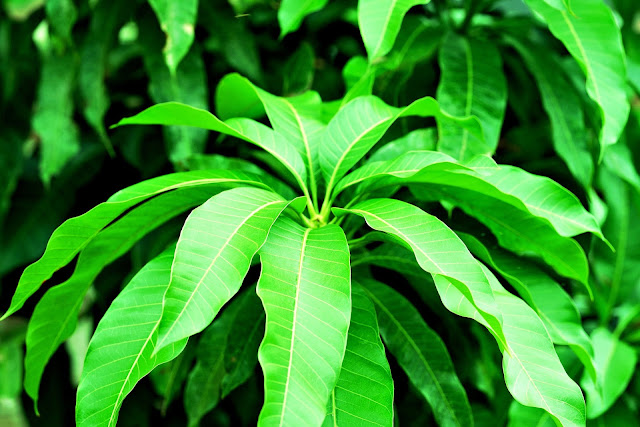How To Make Mango Leaf Tea
The Amazing Benefits of Mango Leaves
Mango leaves are often overlooked, but they can offer many amazing benefits. The leaves of the mango tree have been used for centuries in various forms of traditional medicine and are now gaining more attention from modern medical research. Studies have shown that consuming mango leaf or using it topically can provide numerous health benefits, including treating diabetes, improving heart health, and reducing inflammation. In this blog post, we will explore the incredible advantages of mango leaves and how you can incorporate them into your daily routine.Nutritional Facts of Mango Leaves
Mango leaves are packed with a variety of beneficial nutrients and vitamins that can benefit your health. They contain magnesium, iron, zinc, manganese, and copper which all contribute to the overall nutrition of these leaves. In addition, mango leaves are rich in vitamins A, C, and K. These vitamins work together to provide the body with many different health benefits. The leaves also contain plenty of dietary fiber which helps to improve digestion and reduce cholesterol levels. Furthermore, mango leaves are rich in antioxidants which can help protect the body from damage caused by free radicals. Overall, mango leaves offer a plethora of nutritional facts that make them a healthy choice for any diet.Health Benefits of Mango Leaves
Mango leaves have a number of health benefits due to their high content of vitamins, minerals, antioxidants, and other beneficial compounds. Some of the most notable health benefits of mango leaves include their ability to regulate blood sugar, reduce inflammation, aid digestion, protect the skin, boost the immune system, and even prevent certain types of cancer.Blood Sugar Regulation: Mango leaves are known to contain tannins which help regulate and stabilize blood sugar levels. Studies have found that mango leaves can help lower fasting blood glucose levels in people with type 2 diabetes.
Reducing Inflammation: The powerful antioxidants found in mango leaves are known to reduce inflammation throughout the body and may even help reduce the symptoms of certain chronic diseases like rheumatoid arthritis.
Digestive Health: Mango leaves are believed to be able to improve digestion and help treat stomach issues such as diarrhea, constipation, and bloating. They are also known to soothe an upset stomach and help prevent bacterial infections.
Skin Protection: The antioxidants present in mango leaves can help protect the skin from damage caused by free radicals. This may lessen wrinkling, age spots, and other ageing symptoms.. It can also help soothe sunburns and other skin irritations.
Immune System Booster: Mango leaves are rich in Vitamin C which is known to boost the immune system and protect against infections.
Cancer Prevention: The powerful compounds found in mango leaves are believed to be able to protect against certain types of cancer such as breast cancer, lung cancer, and prostate cancer.
Overall, mango leaves offer many health benefits due to their high content of vitamins, minerals, antioxidants, and other beneficial compounds. These benefits include regulating blood sugar levels, reducing inflammation, aiding digestion, protecting the skin, boosting the immune system, and even preventing certain types of cancer.
Traditional Uses of Mango Leaves
Mango leaves have been used for centuries in traditional Indian and Chinese medicine to treat various ailments. In India, the juice of mango leaves is used to treat diabetes and skin diseases, while the dried mango leaves are boiled in water and taken as a tea for fever and malaria. Mango leaves have also been used to reduce swelling and improve digestion.In some parts of South East Asia, mango leaf tea is a popular remedy for stomach pain, headaches and even snakebites. This tea is made by boiling mango leaves in water until the liquid becomes dark and sweet. The tea is then strained and taken orally for relief from pain. Mango leaves can also be crushed into a paste and applied directly to wounds and cuts to help them heal faster.
Mango leaves are also known to have anti-inflammatory properties and are believed to be beneficial for respiratory illnesses such as asthma and bronchitis. The leaves can be boiled in water and the steam can be inhaled to clear congestion and reduce coughing. In some cultures, dried mango leaves are mixed with sugar and taken as a tonic for general health.
Mango leaves are also sometimes used as a natural dye for clothes or fabrics. Boiling the leaves in water creates a deep reddish-brown dye that can be used to stain fabrics or other materials.
Overall, mango leaves have long been used in traditional medicine and can offer a variety of health benefits when consumed or used topically. Whether you’re drinking mango leaf tea, using it as a natural dye, or applying it topically, mango leaves are definitely worth adding to your holistic health regime.
Disadvantages Of Mango Leaves
While Mango leaves can provide many health benefits, they can also have some side effects. Like with any other herbal remedy, there are some potential risks associated with consuming mango leaves. Some of the most common side effects include digestive issues and skin irritations.Digestive Issues: Mango leaves can act as a laxative, so taking too much can lead to diarrhea and abdominal pain. Additionally, people who suffer from certain digestive problems such as gastritis should avoid mango leaves altogether.
Skin Irritations: Consuming mango leaves can cause allergic reactions in some people, especially those with sensitive skin. The leaf contains histamine-like substances, which can cause itching and rashes on the skin.
It is important to remember that mango leaves should only be taken in moderation, as over consumption of the leaves can result in side effects. Additionally, it is always best to consult a doctor before using any type of herbal remedy.
Mango Leaf Tea Benefits
Mango leaf tea has numerous benefits, making it an ideal beverage for those looking to improve their health. The leaves of the mango tree are known to contain a number of beneficial compounds, including antioxidants and anti-inflammatory properties. Mango leaf tea can help reduce inflammation in the body, which can then lead to improved heart health. Additionally, due to its antioxidant properties, mango leaf tea can also protect the body from free radicals that can cause damage to cells and lead to premature aging.Mango leaf tea is also known to be a good source of vitamins and minerals, such as vitamin A, B6, C and E, as well as iron, calcium and magnesium. These minerals are essential for proper metabolism and overall health. Furthermore, mango leaf tea may help improve digestion and boost the immune system due to its antibacterial and anti-fungal properties. Drinking mango leaf tea on a regular basis may even help to prevent certain illnesses, such as colds, flu and other respiratory infections.
Finally, mango leaf tea may be beneficial for those suffering from hypertension or high blood pressure. Studies have found that drinking mango leaf tea on a regular basis can help lower blood pressure naturally. Therefore, it is a great alternative to traditional medications for treating hypertension.
How To Make Mango Leaf Tea?
Making mango leaf tea is easy and you can enjoy its amazing health benefits. All you need to do is to gather some fresh, washed mango leaves and bring it to boil in a pot of water for about 10 minutes. After the leaves have been boiled, turn off the heat and let the tea cool for 5-10 minutes. Strain the liquid, discarding the leaves and enjoy your tea! If desired, you can add some honey or other natural sweetener of choice to your tea.Mango leaf tea is said to be an effective remedy for various ailments such as colds, coughs, and respiratory problems. Additionally, mango leaf tea has antioxidant and anti-inflammatory properties that can help reduce blood pressure, improve digestion, and lower cholesterol levels. You can also use mango leaf tea to boost your immunity and fight off infections.
Does Mango Leaves Lower Blood Pressure?
Mango leaves have a long history of use as a traditional remedy to treat a variety of ailments, and some research suggests that they may be able to help lower blood pressure. Mango leaves contain natural antioxidants which can help to reduce inflammation and improve the functioning of the cardiovascular system. In addition, these leaves also contain bio-active compounds such as quercetin and gallic acid, both of which have been shown to have anti-hypertensive effects. Studies have shown that consuming mango leaves can result in a decrease in systolic and diastolic blood pressure in individuals with hypertension. The leaves are also thought to contain compounds which increase nitric oxide production in the body, thus helping to widen the blood vessels and reduce blood pressure. While more research is needed to conclusively prove the benefits of mango leaves for blood pressure, many people have reported positive effects from consuming them regularly.Is Mango Leaf Good For Kidney Patients?
Mango leaf has traditionally been used in many cultures for its medicinal properties, including its use to treat kidney disorders. Studies have shown that the compounds in mango leaves can help to reduce symptoms of kidney damage, improve kidney function, and protect against further kidney damage. Mango leaves are rich in antioxidants, which can help to reduce inflammation and oxidative stress in the body, thereby protecting the kidneys from further damage. They are also high in potassium, magnesium, and calcium, which can help to prevent and manage kidney stones. Furthermore, mango leaves are rich in bio-active compounds that can help to reduce uric acid levels, as well as help with the elimination of toxins from the body. Therefore, mango leaves may be beneficial for kidney patients, helping to reduce symptoms and improve kidney health.How Mango Leaves Help Cough?
Mango leaves are known to have powerful health benefits, especially when it comes to treating respiratory illnesses such as a cough. In particular, mango leaves have anti-inflammatory and expectorant properties, making them an ideal remedy for relieving the symptoms of a cough.Mango leaves can be used to make a natural cough syrup that can help soothe sore throats and provide relief from coughing. To make this syrup, simply boil several mango leaves in water, strain the liquid, and then drink it. This syrup can also be taken with honey or added to other herbal teas for extra benefits.
The anti-inflammatory properties of mango leaves help reduce inflammation in the throat and lungs, which can help relieve the pain associated with coughing. Additionally, mango leaves have expectorant properties, which help loosen mucus buildup in the chest and make it easier to expel. This can reduce coughing fits and make it easier to breathe.
Mango leaves can also be consumed as a tea by steeping several leaves in hot water for several minutes. This tea has been found to help reduce inflammation in the throat, clear mucus from the lungs, and reduce coughing fits. It can also help boost your immune system and provide overall relief from coughing symptoms.
Overall, mango leaves offer a variety of benefits for those suffering from a cough or other respiratory illnesses. Not only do they help reduce inflammation and clear mucus from the lungs, but they can also provide relief from coughing fits and boost your immune system. If you’re looking for a natural way to treat your cough, consider giving mango leaves a try!
Conclusion
Mango leaves are a valuable and natural resource that has been used for centuries in traditional medicine. They are rich in vitamins and minerals, as well as other beneficial compounds that provide numerous health benefits. Drinking mango leaf tea is a great way to reap the benefits of this medicinal plant and get your daily dose of essential nutrients. Mango leaf tea can help to lower blood pressure, aid in kidney function, and soothe a sore throat. It is an easy and delicious way to incorporate this herbal remedy into your everyday routine. Whether you choose to drink it hot or cold, the health benefits of mango-leaf tea are hard to ignore.








